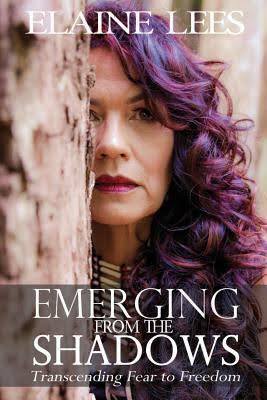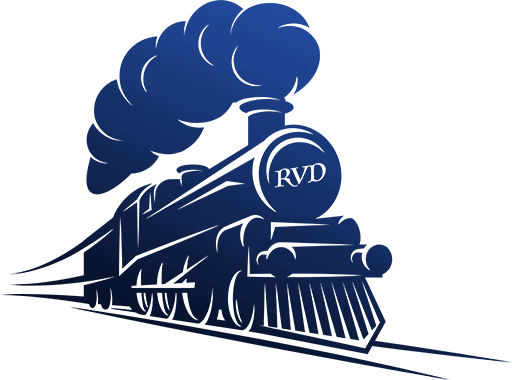Elaine Lees

Elaine Lees’ memoir Emerging from the Shadows: Transcending Fear to Freedom is unique for several reasons. Firstly, Lees does not concentrate on domestic violence, yet the abuse she suffered prompted the writing of the book. Secondly, the opinion of the author’s child is also expressed in her mother’s book. Lees’ daughter, Kiri, eloquently voices how she felt as a small child subjected to the horror of seeing her mother and brothers flagrantly abused by their mother’s partner. And lastly, and this for me is the most significant part of the book, Lees sought to emerge from the horror of abuse through reconnecting with her Maori heritage.
The author discloses that had her father not left the family when she was eleven, had she not reacted to this event with rebelliousness, had she listened to her parents that her choice of partner in her teens might not have been the right man for her, she would arguably not have spiralled into the world of abuse.
Her parents had taught her that the woman was the home-maker. Consequently, keeping a spotless, harmonious home and being a kind and attentive partner was how Lees thought she should handle the abusive situation she found herself in. In her early adult years, she did not understand that nothing she could say or do would ever appease the abuser or end the abuse. It was the partner who had the issues, whatever they were, not Lees or her children.
Fortunately for Lees, she had experienced an idyllic early childhood and later, some exceptional vocational accomplishments. She also recognised the tremendous guilt she experienced for exposing her children to abuse. Though there were strong perceptions of low self-worth and failure in Lees, there was also a spark of the potential to shine that had always been there. She identified what she needed to do to transform her life and set about doing it. Elaine Lees is clearly an incredibly insightful woman because she recognised the lessons that could be learned from the innocent observations of her children, particularly Kiri. She also acknowledged that the loss of the spiritual connection to her parents and the innate wisdom and life experiences of her mother and her mother’s Maori culture affected her. Lees understood that her Maori heritage offered answers to how to traverse the adversities that occurred in her life. And so began her journey of self-discovery.
Maori culture is deeply spiritual. Lees explains that when we connect with that part of us that is Spiritual, the non-physical part of us that connects to Source (or God or Creator, whichever the individual believes in), when we are fully connected to our Wairua (Spirit) and our Mauri (Life Force) we can stand in the fullness of who we are; we can stand in our own power, fully connected to all that is. Lees further observes that since we cannot see our mauri, most people lose their connection with it. The five senses, seeing, hearing, touching, tasting and smelling become the senses people trust and rely on. We must realign our spiritual self with our physical self in order to begin to flourish.
Women everywhere need to leave, must leave, abusive relationships. Yet often they do not. How many have the courage to do so when any self-worth they might have possessed has been beaten out of them? We now know that the abuse is likely to increase immediately, if or when a woman leaves the abuser. The abuser perceives his victim is getting away, so his need to ‘get back at her’ rapidly intensifies. This was graphically illustrated when, after leaving her partner, Rosie Batty’s eleven-year-old son was murdered by his father. When abused, a woman’s self-identity can be so eroded that many begin to question who they are. When they have lost sight of who they are, they see no option other than to remain where they are. If they fight back, they are beaten; if they don’t react to the abuse or if they try to please the abuser to avoid further abuse, they are beaten for their stoicism.
There is abundant wisdom and insight in Lees’ memoir. It inspires women to acknowledge and embrace their birthright of Mana Wahine, no matter what nationality they are for Mana Wahine is the intrinsic feminine psychic force that is within all women. Emerging from the Shadows teaches with the overarching theme of learning from the maiden, the mother and the matriarch. This book should be distributed to every Australasian high school and read by women everywhere.
Thank you, Elaine Lees. You are clearly an amazing woman. See www.elainelees.com
SACRED vs Scared “Am I Good Enough?”
by Elaine Lees
When Elaine Lees talks about family dynamics, relationships, recognising at what point communication in a relationship has the potential to break down; when she describes how individuals can prevent destructive behaviours or deal with them if they occur, she knows what she’s talking about.
Lees comes from a family that experienced dysfunction on many levels.
Three years ago, she wrote Emerging from the Shadows – Transcending Fear to Freedom. In it, she shared her personal story of emerging from family and domestic violence. Her desire was to use the book to assist others to traverse the bridge of fear, abuse, and manipulation to learn to flourish with increased emotional awareness and physical freedom.
This she has been doing since that book’s release.
After the publication of Emerging from the Shadows, the author experienced an image in her mind’s eye; an intuitive vision in which the word SACRED flashed then dissipated, and the word SCARED appeared in its place. She took this as a tohu (sign/symbol) that needed to be expressed. The expression of this vision has become her second book.
In SACRED vs Scared: Am I Good Enough? Lees shows readers how they can move beyond fear and pain (their Scared) and rise above adversity (to their Sacred). She uses the New Zealand Tui to illustrate the passion and purpose of her notion. The Tui is a cheeky, resilient, confident bird with an impressive vocal range and a powerful vertical flight capability. It will often follow an ascension to a desired height with a spectacular dive. It is for reasons such as these that, to Lees, this beautiful bird represents the robust, confident, and capable physical self.
Lees chose a painting by New Zealand artist, Sophie Blokker to adorn the cover of the e-book SACRED vs Scared – Am I Good Enough? Blokker’s painting depicts the Tui beside the delicate flowers of the harakeke which are cleverly positioned to illustrate the outline of the bird. For the author, the visual representation of the harakeke plant symbolises the internal spiritual framework of the human.
For centuries people have used birds to represent spiritual harmony, higher knowledge, freedom, life fulfilment, and the ability to rise above adversity.
An example that comes to mind is Richard Bach’s early 1960s novella, Jonathan Livingston Seagull. It isn’t simply about a bird being rejected by his flock and flying away. It is about a bird embracing Kipling’s Creed, ‘You must sacrifice yourself to achieve success’.
In SACRED vs Scared: Am I Good Enough?, Lees is saying that if you feel less the person that you believe you are or can be; if you are being ill-treated or your self-worth is being eroded, you must attempt to remedy your situation. This may involve sacrificing aspects of your life within the abusive situation to live the life you believe you deserve.
In further disclosing aspects of her journey as a Maori child experiencing injustices in a predominantly pakeha (non-Maori) society, she shares how circumstances can cause us to lose our direction, particularly when we allow the negative influences of others to override our ability to pursue life with purpose.
Lees maintains that, as evident in many indigenous cultures including Maori, all women are born sacred. They are life-givers – with the potential to soar. This author ardently seeks to remind us of that in SACRED vs Scared – Am I Good Enough?
In highlighting the lessons Lees has learned in her own life, she has included exercises in the book (based on her experiences) which offer the opportunity for the reader to determine whether she is feeling scared or if she is experiencing life within her sacred space at that moment. If a negative answer presents, she can immediately see that action needs to be taken.
Lees suggests that there are subtle signs that point towards potential familial abuse but if we don’t know those indicators, we may not be able to act soon enough in whatever constructive way we consider appropriate. Those signs may be masked by the ordinary and mundane. Alternatively, we may find that we are conditioned in such a way that we are prevented from recognising the indicators. If we know them, we can overcome them.
Lees believes we all have a duty to acknowledge domestic or family violence. We need to seek knowledge regarding effective communication in relationships. We need to discern between the reality of a relationship and the potential of it. We need to understand our self-worth. And we need to know that injustices that amount to abuse abound not only in families but beyond the home environment. Sadly, those that occur in families often perpetuate through the generations. We must acknowledge all these situations to prevent abuse or to recognise it when it begins. And we must listen to our intuition.
In her own family, Lees recognises the effects of racism, colonisation, gender inequality and inter-generational trauma. Media manipulation and the inequities within government systems creep on the periphery as well. Lees maintains that if we fail to recognise these injustices, or worse still if we see offences and fail to do something about them, we will always have abuse, addiction, homelessness, illness, poverty, suicide, and violence. And furthermore, we must understand that when we are broken, we will produce broken children.
As a result of writing SACRED vs Scared, Lees has developed a programme, I BELIEVE WE Can Fly, which helps oppressed or unprotected women rise above and beyond fear and pain at the most vulnerable and pivotal times of their lives. It is not only for women who have endured domestic violence but for those who have suffered bereavement, separation or divorce and other life-changing experiences that have left them feeling scared and alone. Lees maintains that women can heal through conscious awareness. She teaches that the most powerful weapon a woman has is her mind.
I like this author. To me, she talks a great deal of sense.

